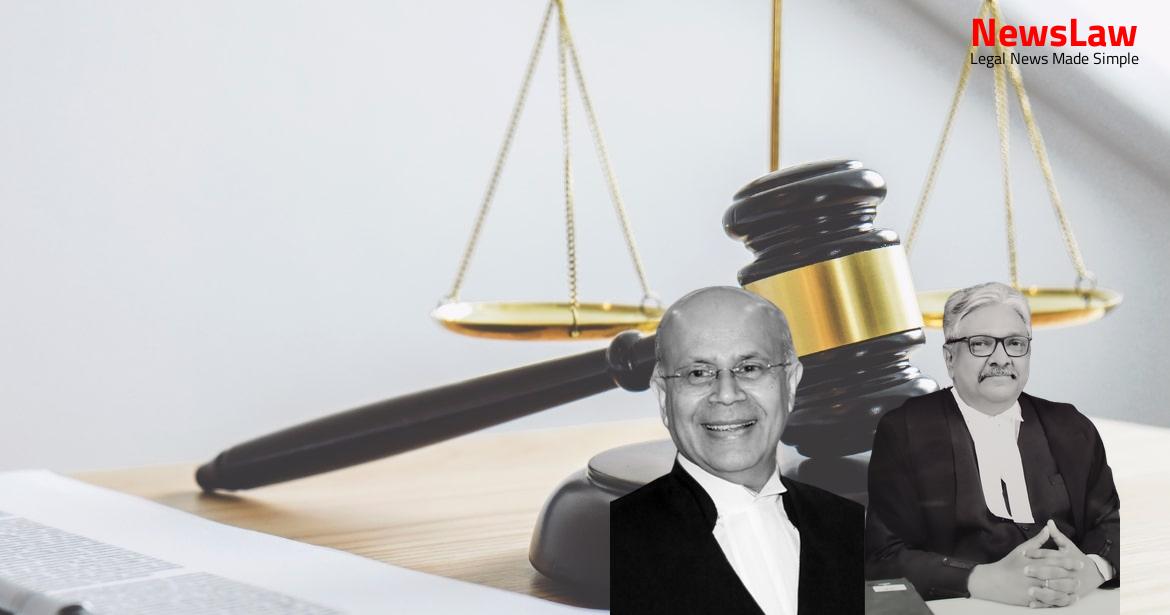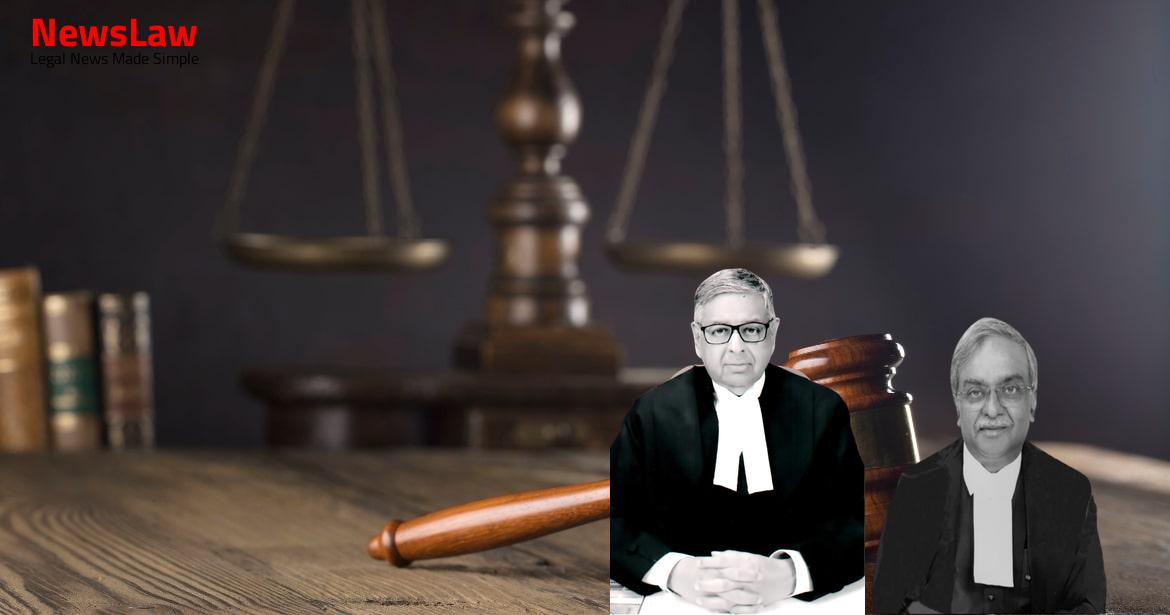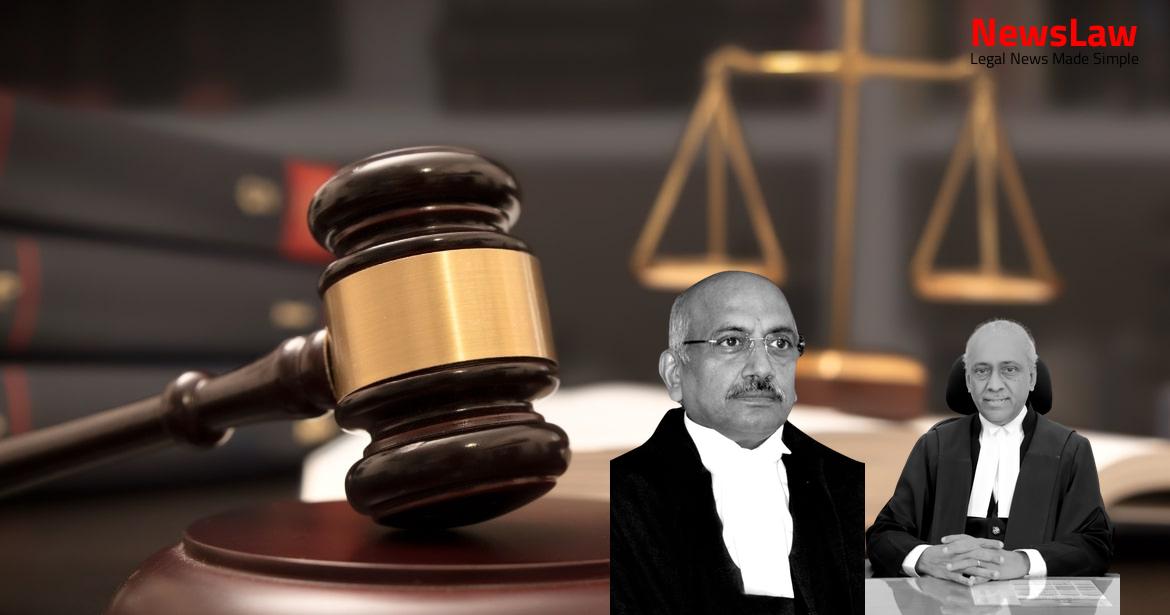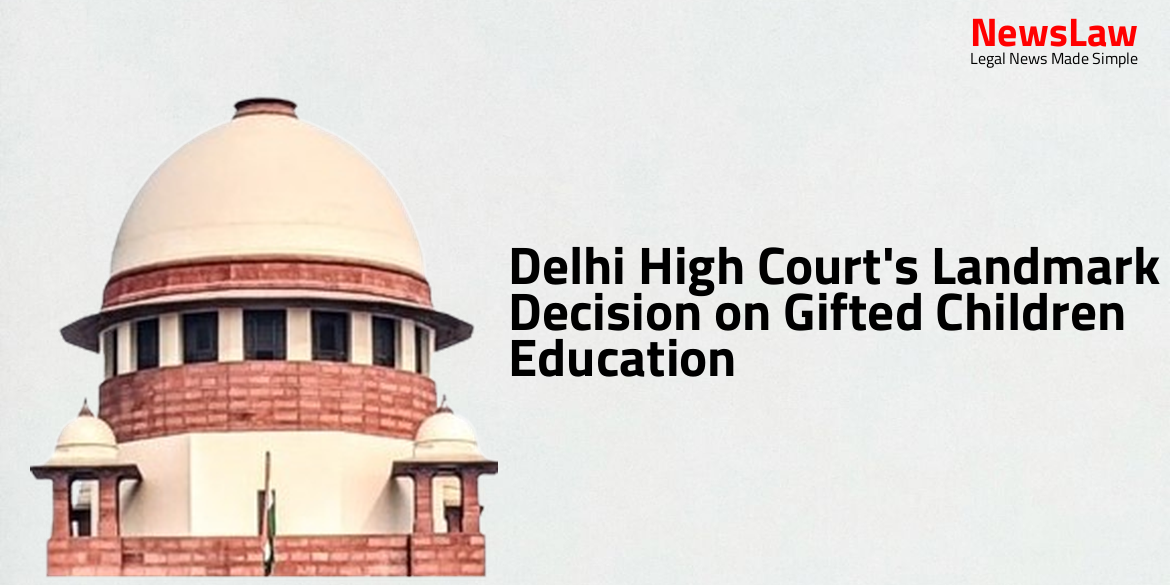Explore the in-depth legal analysis carried out by the court regarding the app-based taxi services market. This summary delves into the nuances of competition law, regulatory scrutiny, and the court’s examination of the intricate details concerning the case. Stay informed about the implications of the court’s legal analysis in this complex legal scenario.
Arguments
- The Appellant argued that the arrangements in the case amounted to ‘hub and spoke’ arrangements, violating section 3 of the Act.
- The allegation of facilitating a cartel by Ola and Uber was refuted as there was no collusion between the two companies.
- The concept of hub and spoke cartel based on a US Class Action Suit was deemed inapplicable to Ola and Uber in India.
- The Commission found that Cab Aggregators did not hold a dominant position in the relevant market.
- There was no collusion between taxi drivers connected with Ola platform as they lacked interconnectivity.
- Uber provided a technology service to driver partners and riders, allowing freedom to choose rides and negotiate fares.
- Cab Aggregators did not function as an association of its driver partners.
- The Appellant referred to agreements between Uber and its drivers, and Ola and its transport service providers.
- The Appellant relied on a legal case to argue about the right of appeal for any person aggrieved by an order.
- Both Cab Aggregators were not operating as a joint venture or group, hence not holding a dominant position within the Act.
- None of the two enterprises was independently alleged to be holding a dominant position in the relevant market.
- The proposition of fact that both enterprises were not holding a dominant position led to the rejection of abuse of dominant position claim.
- Shri Rajshekhar Rao and Shri Balbir Singh supported Dr. Singhvi’s submissions on merits.
- Shri Rao argued that the Appellant cannot be considered a ‘person aggrieved’ for filing an appeal under section 53B of the Act.
- Shri Balbir Singh, representing the CCI, supported the right of the Appellant to approach the CCI with information.
- He suggested imposing heavy costs on those filing frivolous or mala fide information to deter such actions.
- Dr. Abhishek Manu Singhvi emphasized that the findings of the CCI and NCLAT were not perverse and should be upheld.
- It was highlighted that every taxi driver using Ola or Uber apps can have multiple apps and take private rides outside of these apps.
Also Read: Legal Analysis on Physical Ability in Rape Case
Analysis
- The pricing algorithm used by Ola and Uber takes away the freedom of riders and drivers to choose the best price based on competition.
- Consumers are required to download the app before availing cab services from Cab Aggregators.
- Other players also offer services to commuters besides Ola and Uber.
- Dynamic pricing in app-based taxi services can drive prices lower than independent taxi drivers’ fares.
- The Informant’s claim to be a ‘person aggrieved’ under sections 53B and 53T of the Act is questioned.
- The State Government, local authorities, enterprises, or any person aggrieved can appeal under Section 53B(3) of the Act.
- Efforts to liberalize the Indian economy may be jeopardized without expedient disposal by the Commission.
- Hub and spoke arrangement in this context refers to the exchange of information between competitors through a third party for cartelistic behavior.
- Allegations of collusion between drivers through the platform of Ola and Uber are made by the Informant.
- CCI can inquire into alleged contraventions of the Act on its own motion under section 19(1).
- Section 45 of the Act acts as a deterrent against providing false information to the CCI.
- Allegations of price discrimination by Ola and Uber are rejected by the Commission.
- The Commission’s wide powers under sections 27(d) and 31(3) are discussed.
- The Informant’s lack of locus standi is highlighted, questioning the standing to file the appeal.
- The NCLAT, despite finding no locus standi, delves into the merits of the case.
- The business model of Ola and Uber is found not to support the Informant’s claim of price discrimination.
- No contravention of Section 3 of the Act is established in the present case based on the facts.
- Algorithmic pricing impacts negotiation of fares by riders with drivers booked through the apps.
- The Commission observes that an agreement among the drivers to delegate pricing power to the platform is not evident.
- Regulations emphasize the protection of consumer interests and the confidentiality of informants.
- The NCLAT’s narrow interpretation of the Act’s provisions is disagreed with and set aside.
- The Commission’s direction for investigation does not determine rights or obligations of the parties involved.
- The order is made appealable under Section 53-A of the Act.
- Collusion between drivers through the Cab Aggregators’ platforms is alleged by the Informant.
- No dominance is alleged for Ola and Uber in the app-based taxi services market.
- The concept of locus standi has been diluted to some extent by allowing public interest litigation, class action, actions by consumer and trade associations, and whistle blowers.
- The Competition Act specifically provides for the mode of taking cognizance of allegations related to anti-competitive agreements and abuse of dominant positions, including at the instance of a person who has suffered the invasion of legal rights as a consumer or beneficiary of healthy competitive practices.
- A legal grievance arises when an order wrongfully deprives a person of something, causing injury to their legal rights.
- The term ‘person aggrieved’ is elastic and dependent on various factors like the nature of the statute, the complainant’s interest, and the prejudice or injury suffered.
- The Act allows for actions in rem, in public interest, indicating a wide interpretation of ‘person aggrieved’.
- Sections 53B and 53T of the Act use the term ‘any person,’ signifying that anyone bringing information about violations can be considered aggrieved by adverse orders if the CCI refuses to act.
- Section 53N(3) allows for compensation only to persons who have suffered loss or damage due to contraventions of the Act.
- Preliminary objections against filing information before the CCI and filing appeals before the NCLAT were rejected in a specific case involving anti-competitive conduct.
- The Central Government, State Government, local authority, enterprise, or person can apply to the Appellate Tribunal to adjudicate on claims for compensation arising from the findings of the Commission or orders of the Tribunal.
- An application for compensation must be accompanied by the findings of the Commission and prescribed fees.
- Section 53-S allows a person to appear in person or authorize certain professionals to present their case before the Tribunal.
- The Commission has the right to legal representation in any appeal before the Tribunal.
- The Commission can permit a person or enterprise to take part in proceedings if they have a substantial interest in the outcome and it is in the public interest.
- Confidentiality of informant’s identity is maintained unless disclosure is necessary for the Act’s purposes.
- The Commission can empanel legal practitioners, chartered accountants, and others to assist in proceedings.
- Penalties are specified for providing false information under the Act.
- Appeals to the Appellate Tribunal must be filed within a prescribed period and decided expeditiously.
- Provisions for awarding compensation are outlined, subject to certain conditions and investigations.
- The right to legal representation before the Commission or Tribunal is detailed.
- The Act defines various terms including cartel, consumer, and person.
- Provisions for inquiry into anti-competitive agreements and dominant positions are outlined.
- The duties of the Commission include promoting competition, protecting consumer interests, and ensuring freedom of trade.
- Procedures for inquiries under section 19 are specified.
- Appeals to the Supreme Court can be filed by aggrieved parties against Appellate Tribunal decisions.
- The Commission can authorize professionals to act as presenting officers before the Tribunal.
- Specific provisions for the Commission to file appeals to the Supreme Court are mentioned.
Also Read: Judicial Discretion in Contractual Interpretation
Decision
- The court sees no reason to interfere with the 32 findings
- The appeal is disposed of in terms of this judgment
Also Read: Interpretation of Contractual Terms in Legal Analysis
Case Title: SAMIR AGRAWAL Vs. COMPETITION COMMISSION OF INDIA (2020 INSC 700)
Case Number: C.A. No.-003100 / 2020



